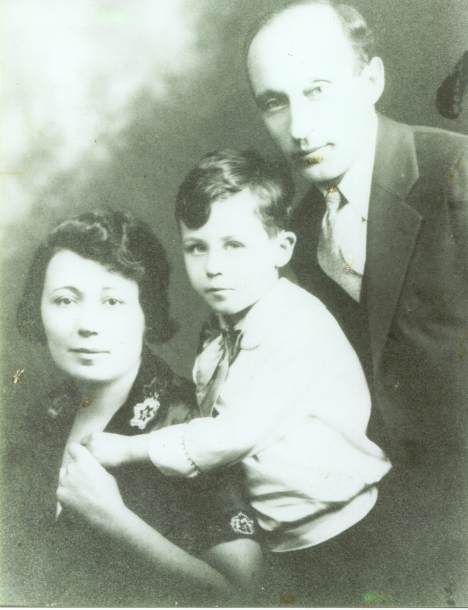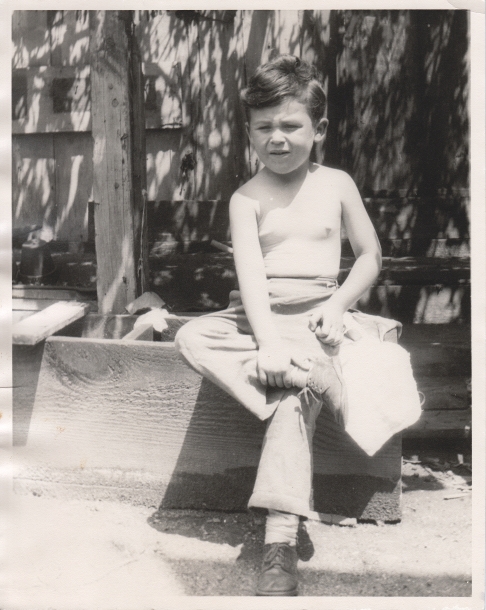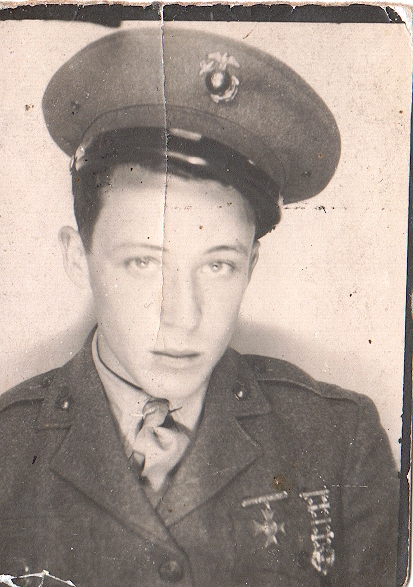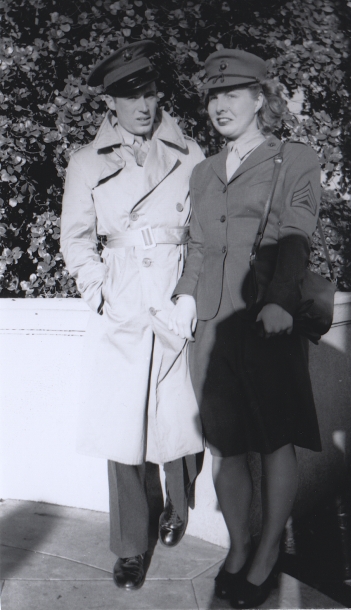Leon Uris (78 page)
Authors: The Haj
Tags: #Fiction, #General, #History, #Literary, #American, #Literary Criticism, #Middle East

He held my head in his lap and stroked me and I sobbed until nothing was left. A wild burst of dying sunlight flooded the room and we remained in darkness.
‘Why?’ I whispered, ‘why?’
‘You were three beautiful people who loved each other fiercely. But you were born into a culture which has no place for such love to express itself. We are accursed among all living creatures.’
‘What is to become of us all?’ I said, as much a groan as a question.
He was silent for ever so long. I watched the outline of his shadow swaying, moaning.
‘You must tell me, Dr. Mudhil.’
‘I shall tell you,’ he said softly, in agony. ‘We do not have leave to love one another and we have long ago lost the ability. It was so written twelve hundred years earlier. Hate is our overpowering legacy and we have regenerated ourselves by hatred from decade to decade, generation to generation, century to century. The return of the Jews has unleashed that hatred, exploding wildly, aimlessly, into a massive force of self-destruction. In ten, twenty, thirty years the world of Islam will begin to consume itself in madness. We cannot live with ourselves ... we never have. We cannot live with or accommodate the outside world ... we never have. We are incapable of change. The devil who makes us crazy is now devouring us. We cannot stop ourselves. And if we are not stopped we will march, with the rest of the world, to the Day of the Burning. What we are now witnessing, Ishmael, now, is the beginning of Armageddon.’
... I do not know the exact moment the blackness overcame me ...
I was packing my suitcase to leave when suddenly my hands could not hold things ... my mind became a haze ...
... I fought hard to regain clarity, but it only came through in snatches ...
Each day the blackness won out more and more until I exhausted my powers to prevent it...
... and so, I succumbed ...
Everyone says I am insane because I have stopped speaking ...
... many times when Dr. Mudhil came and pleaded with me ... I wanted to speak back to him, but I was unable ... his words were so hard for me to comprehend anymore ...
... One night I went berserk about Nada and smashed up the photographs of Jamil and Omar and Ibrahim ...
... after that I was chained to the wall on my cot ...
... every time I thought of Nada, the terrible pain swept over me and I seemed to lose control ... again and again ...
... All day long children peek into my door and point at me and taunt me ... I do not care ...
... So I am chained ... every day Hagar stands over me and spits on me and kicks me. I hear Kamal and Mother plot to sell me to a suicide squad in the fedayeen ... they pay three hundred American dollars now and they need the money ... I am not mad ...
... But they are desperate ... Kamal has no work ... Omar’s salary cannot keep them alive ...
... oh yes, I hear them plot ... what they do not know is that I have found happiness, for now I can speak to Nada ... I see her every night ... she comes to me ... she keeps telling me to run away ...
... stupid Kamal has never done anything right... he does not know I have worked the bolts in the wall loose and that I can rip them out whenever I choose ...
... yes, Nada, I will escape ...
I will follow you ...
... the wadi leads back into the caves ...
... the sun is so bright ...
... I should have brought water and worn shoes ... but I had to follow Nada immediately, for fear she would disappear again ...
... I have come very far into the canyons... my feet are starting to bleed and burn ... I will rest ... damn these chains on my wrists ...
... Wait, there is Nada climbing up in the rocks ...
... ‘Nada! ... wait ... I will climb to you, my beloved sister ... oh, Nada, stop teasing me ...’
... climb ... climb ... get up there to her ... do not slip ... do not fear ... ‘Nada, take my hand and help me, my chains are so heavy ...’ Hot ... in the Prophet’s name it is so hot ... oh, Ishmael, you were foolish to come back here without water ... But I had to run or they would have taken me away to the fedayeen ...
... oh God, I think I followed the wrong canyon in ... I am lost ...
... There is Nada again ... she climbs like an ibex ... so graceful ... so lovely ... suddenly she sits on the edge of the ledge, taunting me and laughing ...
... ‘Nada, I am coming to you ... and from your ledge we can fly to the seven paradises ...’
... look how high I have climbed ... from here I can see the vastness of the desert ... the Dead Sea ... all the way across the river to Mount Nebo ...
... In Allah’s name, do I hear locusts? No, there is a thickness moving toward me, but they are not locusts ... they are ...
People ... yes, I see clearly, the desert is filling up with millions and millions of people!
They see me!
They are calling me.
‘Ishmael, save us!’
‘Go back, all of you, go back! Do not come any further into this wilderness! Go back! I command you!’
... Why don’t they listen! They keep coming, millions and millions ...
‘Ishmael, save us!’
‘Fools! Fools! Turn back. Turn back or the Day of the Burning will be upon us. In Allah’s name, turn back! This is Armageddon!’
... Oh my God, they do not listen ... they just keep coming ...
... I will speak to them again ... but the climb has made me tired and the chains have worn me out ...
... First I must rest ... I must lie down for just a little while ... my face feels too hot pressing on the rock ... I’d better stand ... I cannot get to my feet ... No, I think I will sleep for a while ... the sun is hot ...
... I am so tired ... so very tired ...
THE END
Leon Uris (1924–2003) was an author of fiction, nonfiction, and screenplays who wrote over a dozen books including numerous bestselling novels. His epic
Exodus
(1958) has been translated into over fifty languages. Uris’s work is notable for its focus on dramatic moments in contemporary history, including World War II and its aftermath, the birth of modern Israel, and the Cold War. Through the massive popularity of his novels and his skill as a storyteller, Uris has had enormous influence on popular understanding of twentieth-century history.
Leon Marcus Uris was born in Baltimore, Maryland. He was the son of Jewish parents of recent Polish-Russian origin. As a child, Uris lived a transient and hardscrabble life. He attended schools in Baltimore, Virginia, and Philadelphia while his father worked as an unsuccessful storekeeper. Even though he was a below-average student, Uris excelled in history and was fascinated by literature; he made up his mind to be a writer at a young age.
After the attack on Pearl Harbor in 1941, Uris dropped out of high school to enlist in the Marine Corps. From 1942 to 1945 he served as a radio operator in the South Pacific, and after the war he settled down in San Francisco with his first wife, Betty. He began working for local papers and wrote fiction on the side. His first novel,
Battle Cry
, was published in 1953 and drew on his experience as a marine. When the book’s film rights were picked up, Uris moved to Hollywood to help with the screenplay, and he stayed to work on other film scripts, including the highly successful
Gunfight at the O.K. Corral
in 1957.
Uris’s second novel,
The Angry Hills
(1955), is set in Greece but contains plot points that center on Jewish emigration to the territories that would eventually become Israel. The history that led to Israel’s earliest days is also the subject of Uris’s most commercially successful novel,
Exodus
. Not long after Israel first achieved statehood, Uris began researching the novel, traveling 12,000 miles within the country itself, interviewing over 1,200 residents, and reading hundreds of texts on Jewish history. The book would go on to sell more copies than
Gone with the Wind
.
Uris’s dedication to research became the foundation of many of his subsequent novels and nonfiction books.
Mila 18
(1961) chronicles Jewish resistance in the Nazi-occupied Warsaw ghettos, and
Armageddon
(1964) details the years of the Berlin airlift.
Topaz
(1967) explores French-American intrigue at the height of the Cold War during the Cuban Missile Crisis, while
The Haj
(1984) continues Uris’s look into Middle Eastern history. Much of Uris’s fiction also draws explicitly from his own travels and experiences:
QB VII
(1970) is a courtroom drama based on a libel case against Uris that stemmed from the publication of
Exodus
, and
Mitla Pass
follows a Uris-like author through Israel during the Suez crisis.
Ireland: A Terrible Beauty
and
Jerusalem: Song of Songs
are sensitive, nonfiction documentations of Uris’s travels and include photographs taken by his third wife, Jill.
Throughout his career Uris continued to write for Hollywood, adapting his own novels into movies, and working as a “script doctor” on films such as
Giant
and
Rebel Without a Cause
.
QB VII
was adapted for television, becoming the first ever miniseries. Uris passed away in 2003 at his home on Long Island. His papers are housed at the Ransom Center at the University of Texas in Austin.

Leon with his parents, William and Anna Uris, who divorced in 1929. William “Wolf” Uris emigrated from Russia to America in 1921 and worked a string of blue-collar jobs before settling into a position as a Communist Party organizer. Anna, who came from a close-knit Jewish family in Maryland, raised Leon and his sister, Essie, mostly in Baltimore and Norfolk, Virginia.

A young Uris in 1929, probably at his family’s home in Baltimore. Throughout much of his early life Uris was shuttled between his father in Philadelphia and his mother in Baltimore. He eventually came to regard his mother as “psychologically unhinged” and his father as a “failure.” This led him to seek success in the world at all costs. “I can say without hesitation,” he once wrote, “that, from earliest memory, I was determined not to be a failure.”

Uris as a young soldier in the Marine Corps. Uris enlisted in the Marines during the height of World War II when he was just seventeen years old. He subsequently served as a radio operator and saw combat in the South Pacific. His war experience represented a defining moment in his life, shaping his outlook on politics and providing rich material for his first book, the blockbuster novel
Battle Cry
.

Uris with his first wife, Betty Beck, in 1945. The two met during the spring of 1944 in San Francisco, where Betty was stationed as a marine sergeant and Uris was hospitalized for malaria, a disease he contracted during his tour in the Pacific theatre. Initially their relationship caused some friction between their respective families since Leon had been raised Jewish, while Betty hailed from a Lutheran family of Danish descent in rural Iowa. However in 1945 the couple tied the knot and began a happy life in the Northern California suburbs.
